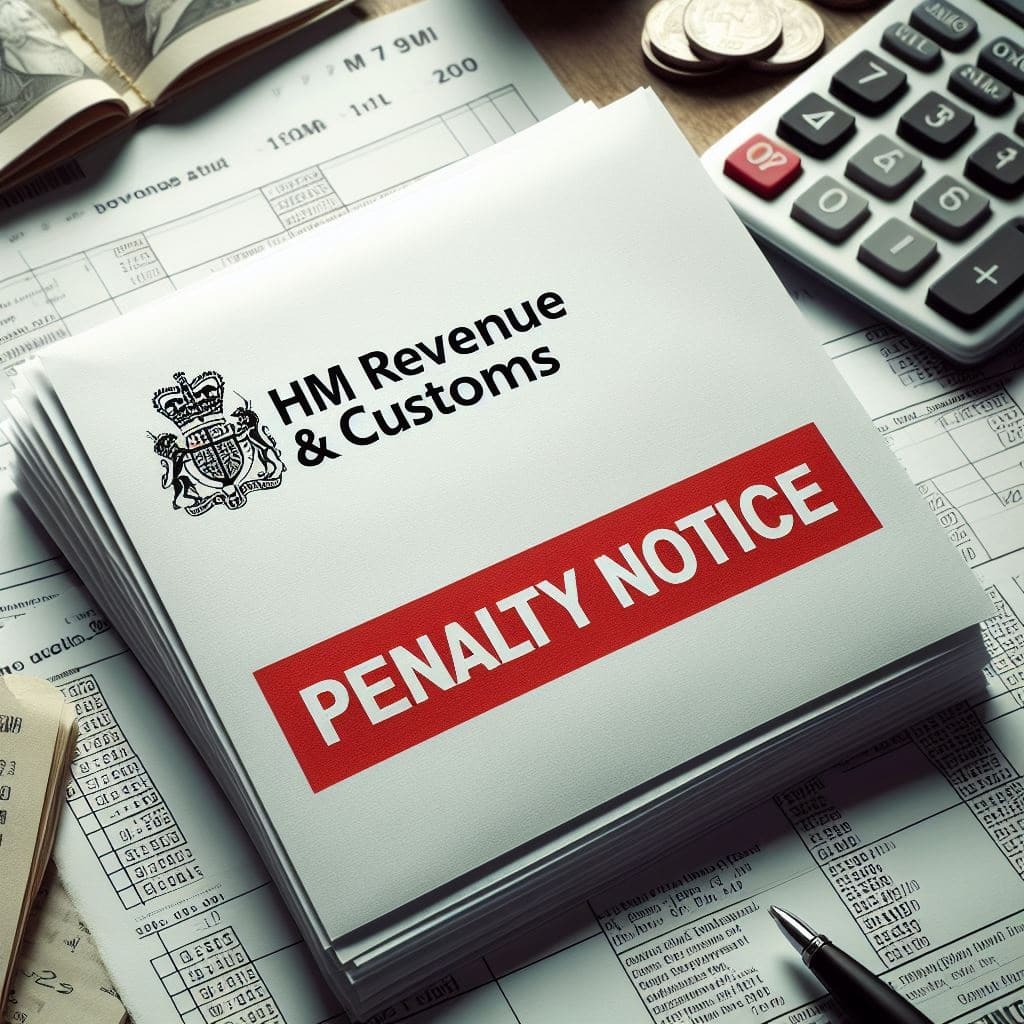Running a small business comes with many responsibilities – from managing cash flow to meeting tax deadlines. One area that can catch people out is HMRC penalties. These fines can add up quickly if you miss deadlines, make mistakes on returns, or fail to pay what’s due. Understanding how penalties work (and how to avoid them) is vital for keeping your business finances on track.

Why HMRC Issues Penalties
HMRC doesn’t issue penalties to be difficult – they are there to encourage businesses to meet their tax obligations on time and accurately. The main reasons you may face a fine are:
- Late filing – submitting your Self Assessment, Corporation Tax, or VAT return after the deadline.
- Late payment – not paying tax owed by the due date.
- Inaccurate returns – submitting incorrect information, whether by mistake or deliberately.
Common Penalty Amounts and Interest Charges
The type of penalty depends on the issue:
- Self Assessment late filing:
- £100 automatic penalty if your return is up to 3 months late.
- Daily penalties of £10 per day after 3 months (up to 90 days).
- Additional penalties at 6 and 12 months of £300 or 5% of the tax due (whichever is higher).
- Late payment penalties:
- 5% of unpaid tax after 30 days, 6 months, and 12 months.
- Interest is also charged on late payments until the balance is cleared.
- VAT errors:
- Penalties depend on whether the error was careless, deliberate, or concealed.
- They range from 0% for genuine mistakes (if disclosed) up to 100% of the tax underpaid in serious cases.
- Corporation Tax:
- £100 penalty for filing a return late, rising to £200 if more than 3 months late.
- If late 3 times in a row, penalties increase further.
Real-World Examples
- Missing the Self Assessment deadline: If you filed your tax return on 10 February instead of 31 January, you’d face the £100 fine straight away, plus interest if payment was also late.
- VAT mistakes: A business that incorrectly claimed input VAT due to poor record keeping could face a penalty if HMRC decides the mistake was careless rather than an honest error.
How to Appeal or Reduce a Penalty
If you think a penalty is unfair, you can appeal to HMRC. You’ll usually need a “reasonable excuse”, such as:
- Serious illness or bereavement.
- HMRC system errors or technical issues.
- Unforeseen events outside your control.
If HMRC accepts your appeal, the penalty may be cancelled or reduced. Even if you made a genuine mistake, telling HMRC as soon as possible can help lower the penalty amount.
Practical Steps to Avoid Penalties
Prevention is always better than cure. Here are some steps to stay penalty-free:
- Keep accurate records – update your bookkeeping regularly to reduce mistakes.
- Use cloud-based accounting software – tools like Xero make filing and payments easier.
- Set reminders – mark key HMRC deadlines in your calendar.
- File and pay early – don’t wait until the last minute.
- Work with your accountant – professional support can help spot errors before HMRC does.

Leave a Reply